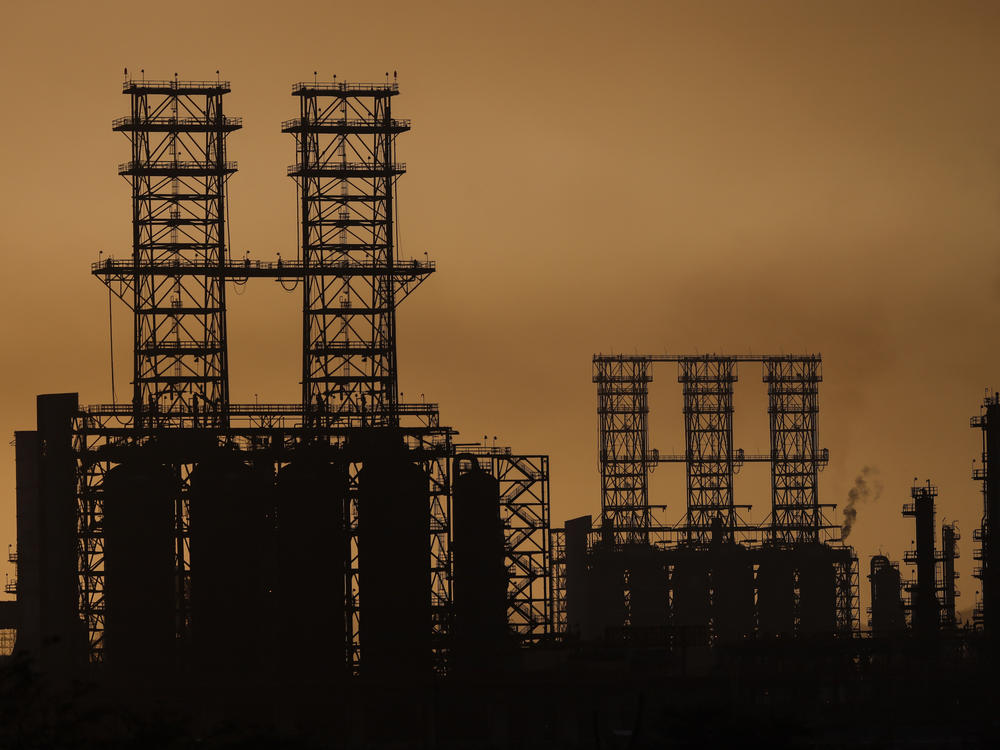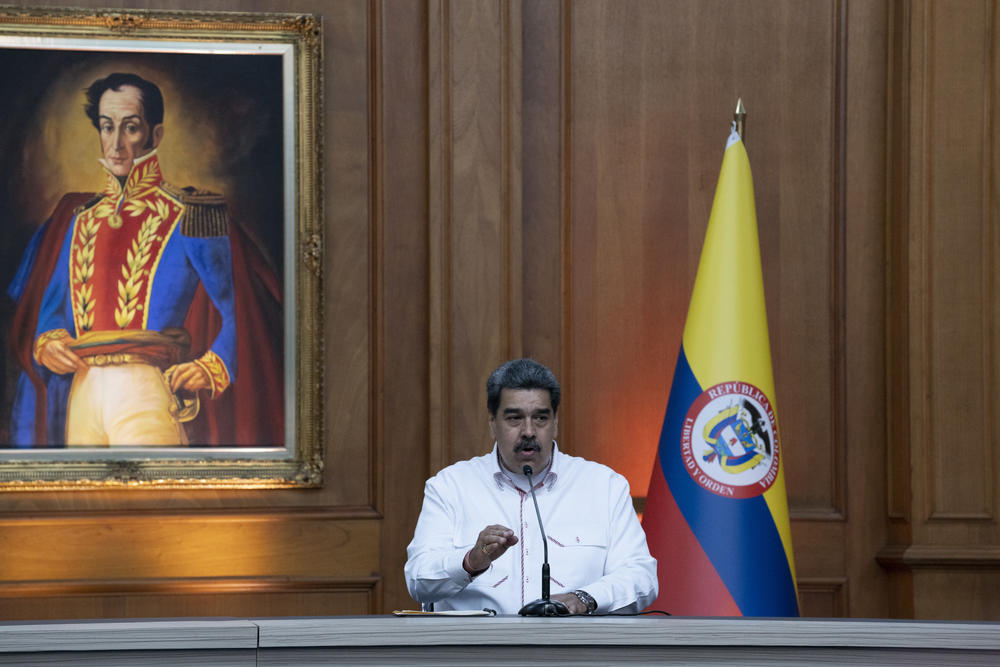Section Branding
Header Content
The U.S. is trying to mend ties with Venezuela. One big reason? Oil
Primary Content
BOGOTÁ, Colombia — Under former President Donald Trump, the United States pushed hard for regime change in Venezuela. In response to a crackdown on democracy by Venezuela's authoritarian leader Nicolás Maduro, Washington in 2019 placed sanctions on the country's vital oil sector. Along with more than 50 countries, the U.S. recognized opposition leader Juan Guaidó as Venezuela's rightful president. And it encouraged the Venezuelan military to topple Maduro.
But none of this has worked. The military continues to back Maduro, who has kept Venezuela's economy (barely) afloat by selling oil to China and other allies. Support for Guaidó, who wields no real power, is waning with more countries reengaging with Maduro. Now, Russia's invasion of Ukraine and the ban on Russian oil imports is prompting the U.S. to seek new sources of energy.
For all these reasons, the Biden administration is extending a tentative olive branch to Venezuela.
How is the U.S. reaching out to Maduro?
The Biden administration has sent delegations to Caracas where the two sides negotiated a prisoner swap that freed seven Americans, including five oil executives. They also discussed easing U.S. sanctions, a move that could help U.S.-based Chevron expand its oil operations in Venezuela.
But before that can happen, the U.S. wants the Maduro regime to return to stalled negotiations in Mexico with Venezuela's political opposition. Its leaders are demanding democratic reforms that would open the door to free and fair Venezuelan presidential elections in 2024.
"We would like the release of political prisoners," Carlos Vecchio, the Venezuelan opposition's envoy to Washington, told NPR, speaking about his countrymen jailed in Venezuela. "We would like to see a date for the election. We would like to see free media and protection against human rights violations."
What's in it for Maduro regime?
Sanctions relief would help Venezuela rebuild its oil industry and allow its crude to start flowing to global markets again, including to the U.S., which used to be Venezuela's No. 1 buyer. Venezuela is home to the world's largest proven oil reserves and used to produce nearly 3 million barrels of oil per day. That figure dropped to just 534,000 in October, according to Reuters.
Jump-starting the oil sector would help revive Venezuela's moribund economy which — due to mostly to corruption and mismanagement — contracted by about two-thirds between 2014 and 2020. A growing economy, in turn, would boost Maduro should he run for president again in 2024.
Maduro "can use repression and fraud to stay in power. But I think he would far rather win a relatively clean election," said Phil Gunson, a senior analyst in Caracas for the International Crisis Group. "And he can't do that unless the economy is fixed or at least looks like it's moving in the right direction."
What's in it for the Biden administration?
Reengagement could convince Maduro to return to negotiations with the political opposition with the goal of free elections and a democratic transition.
Should that happen, a gradual lifting of sanctions could put more Venezuelan oil on the global market, a key goal amid the energy shock caused by Russia's invasion of Ukraine. U.S. reengagement could help blunt the growing influence of Russia and China in Venezuela.
Sanctions relief could, in turn, help improve Venezuela's economy and reduce the outflow of Venezuelan migrants. Under Maduro, more than 7 million people have fled Venezuela with many bound for the United States.
Meanwhile, Colombian President Gustavo Petro met Maduro in Caracas Tuesday and pledged to improve trade and security cooperation between the neighboring countries, in another sign of nations warming up to the regime.
Copyright 2022 NPR. To see more, visit https://www.npr.org.


